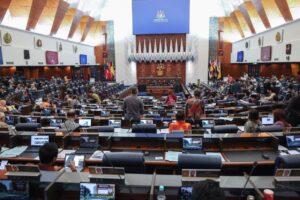RIYADH, Aug. 28 (Xinhua) — The relationship between Saudi Arabia and China has moved beyond trade to become a comprehensive strategic partnership, representing a successful model of economic integration, said Mashael bin Saedan, a member of the Saudi-Chinese Business Council.
In a recent interview with Xinhua, Saedan said the partnership “embodies genuine international cooperation” and reflects the reality of an interconnected world. “What we seek is not temporary cooperation, but strategic integration,” she noted.
Established in 2003, the Saudi-Chinese Business Council now comprises more than 1,500 members across key sectors, including real estate and construction, energy, industry, technology, and financial services.
Saedan said the council will take part in the China-Arab States Expo in China‘s northwestern Ningxia Hui Autonomous Region from Aug. 28 to 31, aiming to align Saudi Arabia’s Vision 2030 with China’s Belt and Road Initiative and open new avenues for investment and cooperation.
She praised the performance of Chinese companies in the Saudi market, citing their “speed of implementation, high efficiency, and competitive costs.” Their experience in building integrated cities and using advanced construction methods, she said, has raised competition and quality standards in Saudi Arabia.
According to data from the Saudi Ministry of Investment, China has become the kingdom’s largest source of greenfield foreign direct investment, about a third of which has been in clean technologies such as batteries, solar, and wind. The investment, Saedan said, has facilitated technology transfer and created thousands of jobs, while both sides are advancing projects in solar and wind energy, with promising prospects in green hydrogen development.
Looking ahead, Saedan highlighted vast opportunities in real estate, green energy, and smart city development. She noted that annual bilateral trade has already surpassed 100 billion U.S. dollars, underscoring the strength and bright prospects of the partnership.
“Ningxia, as one of China’s gateways to the Arab world, provides a platform to deepen cooperation in halal food, renewable energy, and smart agriculture — areas that complement Saudi Arabia’s experience in sustainable urban development,” she said.
“What we pursue is not merely phased cooperation, but strategic integration to reshape the global economic landscape,” she added, expressing hopes that the partnership will become “a model for the international community in terms of trust, sustainability, and innovation.”






